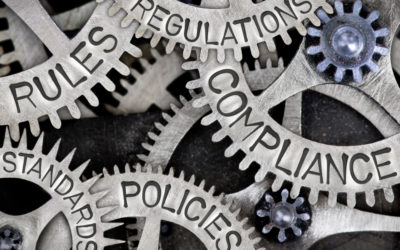In the ever-evolving landscape of business regulations, compliance is not just a necessity—it’s a cornerstone of sustainable operations. Non-compliance, the failure to adhere to laws and regulations, can have far-reaching consequences, affecting everything from a company’s reputation to its bottom line. Below, we explore some of the key consequences of failing to stay compliant.
1. Non-Compliance Leads to Financial Penalties and Legal Actions
One of the most immediate consequences of failing to meet regulatory requirements is the imposition of hefty fines. Businesses may also face lawsuits from stakeholders, customers, or even government agencies. Legal actions can result in additional costs, including attorney fees and settlement payouts, further straining financial resources.
2. Damage to Reputation
A company’s reputation is one of its most valuable assets. Lack of compliance can tarnish a brand’s image, leading to a loss of trust among customers, investors, and employees. In today’s digital age, news of regulatory breaches spreads quickly, amplifying the damage to a company’s public image.
3. Operational Disruptions
Regulatory violations often lead to operational disruptions. Authorities may issue orders to halt operations until compliance is achieved. This downtime not only affects revenue generation but also disrupts supply chains and erodes customer loyalty.
4. Increased Scrutiny
Organizations found in violation of regulations often attract increased attention from regulators. This can lead to more frequent audits and higher levels of oversight, consuming valuable time and resources that could otherwise be spent on growing the business.
5. Impact on Financial Reporting
Failure to comply with regulations often affects the accuracy and transparency of financial reporting. Regulatory violations practices can result in misleading financial statements, which can deter potential investors and harm existing shareholder relationships. Moreover, inaccurate financial reporting can attract additional regulatory penalties.
6. Employee Morale and Retention
Lack of compliance can create a stressful work environment, leading to decreased employee morale. Employees may lose trust in leadership, resulting in higher turnover rates. This disruption can further hinder organizational growth and productivity.
How to Avoid These Consequences
To mitigate the risks associated with failure to comply, businesses should:
-
Invest in Training: Regular training ensures employees are aware of regulatory requirements.
-
Leverage Technology: Compliance management tools can streamline the monitoring and reporting process.
-
Conduct Regular Audits: Periodic reviews help identify and rectify potential compliance issues.
-
Partner with Experts: Professional Employer Organizations (PEOs) like NetPEO can assist in maintaining compliance by managing HR functions, payroll, and employee benefits in alignment with regulations.
The consequences of Lack of compliance extend beyond financial penalties, impacting a company’s operations, reputation, and workforce. By prioritizing compliance and leveraging the expertise of a PEO, businesses can safeguard their future while focusing on growth and innovation. Compliance isn’t just about avoiding penalties; it’s about building a resilient and trustworthy organization.


